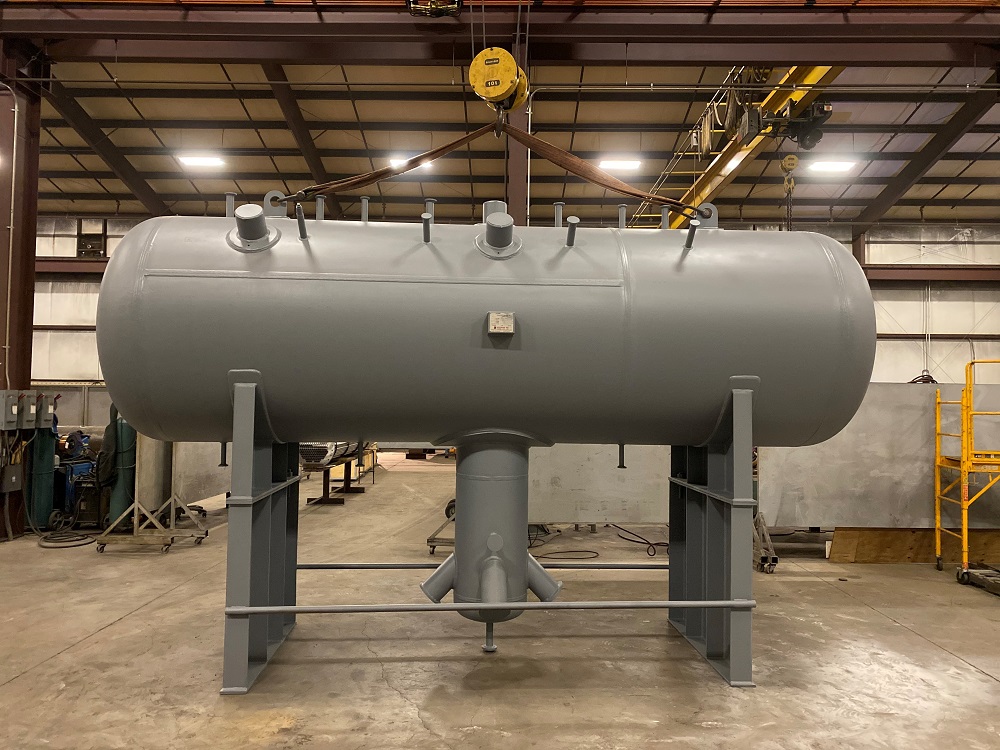Introduction to Pressure Vessels
Pressure vessels are specialized containers engineered to store and transport gases or liquids under high pressure. These vessels are essential across various industries, including power generation, chemical processing, oil and gas, and water treatment.

Purewater Expert delivers precision-engineered electrical control panels, ensuring efficiency, reliability, and seamless integration for every application.
Product Description
Pressure vessels are integral components in industrial processes, designed and manufactured in accordance with strict codes and standards to guarantee safe and efficient operation. Our pressure vessels undergo rigorous pre-fabrication material inspections, manufacturing checks, and quality assurance processes to ensure compliance with international safety standards such as ASME. With a dedicated team of engineers and skilled technicians, we specialize in the design, fabrication, and inspection of high-performance pressure vessels tailored to meet specific industrial requirements.
Functionality
Pressure vessels are primarily used to store and regulate pressurized fluids or gases. Their ability to maintain high-pressure conditions makes them essential in industries such as power generation, wastewater treatment, and chemical processing. These vessels are built with materials that can endure extreme pressure and temperature conditions while incorporating safety mechanisms such as insulation, pressure relief valves, and monitoring instruments to ensure smooth and secure operation.
Feature
- Material Options: Manufactured from stainless steel, carbon steel, and specialized alloys, depending on application needs.
- High Pressure Resistance: Designed to withstand varying levels of pressure and extreme temperatures.
- Compliant Design: Adheres to industry standards such as ASME, API, and PED to ensure optimal performance and safety.
- Customizable Capacities: Available in multiple sizes, from small-scale units to large industrial tanks.
- Versatile Shapes: Cylindrical, spherical, and rectangular designs to accommodate different spatial requirements.
- Ease of Maintenance: Engineered for user-friendly operation and minimal upkeep.
- Cost-Effective Solutions: Offers efficiency, durability, and safety while remaining budget-friendly.
Advantages
- Exceptional Durability: Resistant to high pressure, temperature fluctuations, and corrosive environments.
- Enhanced Safety: Equipped with pressure relief devices and rupture discs to prevent operational hazards.
- Broad Industry Applications: Suitable for use in various industrial processes, including storage, mixing, and separation.
- Space Efficiency: Optimized designs reduce the space required for fluid or gas storage compared to conventional methods.
- Flexible Customization: Can be tailored to meet unique specifications, including size, shape, and pressure ratings.
PLANTS WE OFFER


Frequently Asked Question
Pressure vessels play a crucial role in water purification and wastewater treatment by facilitating processes such as reverse osmosis, ultrafiltration, and microfiltration. These vessels help in removing impurities and ensuring clean, treated water for industrial and municipal applications.
In RO systems, pressure vessels house semipermeable membranes that separate dissolved salts and contaminants from water. High pressure forces water through the membranes, leaving impurities behind and producing purified water.
Common materials include fiberglass-reinforced plastic (FRP), stainless steel, and polyethylene, depending on the water quality and required durability.
Regular inspections, at least once a year, are recommended to ensure structural integrity, prevent leaks, and maintain operational efficiency. Maintenance schedules may vary based on usage and environmental conditions.
Indicators include visible corrosion, leakage, structural weaknesses, or decreased efficiency. Routine inspections can help detect issues early and prevent operational failures.
